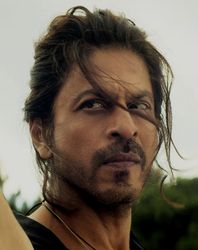Back in the day we used to have proper, old school grandmothers. The sort of grandmothers poet Maithili Sharan Gupt invoked in his popular poem “Ma Keh Ek Kahani (Mother, tell me a story”.) Being grandmothers was their sole job and it was a vital one. They were matriarchs who presided over massive joint families—the repository of the family’s traditions, history and culture, dishing out food for the body, and spiritual succour for the soul on a daily basis. At night, they bought a tray of steel glasses full of warm milk out into the courtyard and sat in the middle of a ring of grandchildren’s beds and told them stories. Everybody agreed that this was their most important (and loved) task.
No offence to anybody’s dadi (father’s mother) but (almost) all children agree that a nani (mother’s mother) is the real deal. Perhaps, because they tend to be younger, and also because a mother is typically more relaxed around her own mother, which causes her children to be similarly more relaxed, too. Even in Gupt’s poem, the second line, which is the mother’s playful response to her son’s request is, ‘beta samajh liya kya toone mujko apni nani?’ (Son, have you mistaken me for my mother?)
Needless to say nanis like that exist only in daily TV serials today. IRL nanis are multi-taskers with a vengeance, they have careers, friends, fitness routines, and no longer have so many grandchildren (my nani had 21!) that being a grandmother can be justified as a fulltime job. We live in a world where children, especially those belonging to busy parents living in cities far from their hometowns either in India or abroad, typically do not go back to their grandparents’ homes during their summer vacations any more. And so, during festivals, weddings or long holidays—times during which an old school nani would have taken centrestage, we yield that space to ‘Family Entertainers’ instead.
Like it or not, these family entertainers from the film industry have been subbing as our maternal grandmothers for many, many generations now. NRI kids and desi kids alike have routinely been piled into one bedroom during the festive season and left in the nourishing arms of Indian cinema. For our vast and widely spread diaspora they are our common reference points, our shared history and geneaology.
The houses of Chopra and Bhansali and Dharma are our nanis. Salim Khan is our nani. Javed Akhtar is our nani. And, of course, Sooraj Barjatya is the officially crowned nani-of-the-nation—we all saw India’s most powerful family swing to “Wah Wah Ram Ji” in a viral video at Anant Ambani’s engagement recently. Also, sorry to spoil the sexy vibe he is currently shipping, but Shah Rukh Khan is also our most beloved nani.
Largely speaking, cinema-nani have taught us well. She has taught us the correct songs to sing at weddings, funerals and every occasion in between. She has shown us heroism, villiany and the road to redemption. She has brought alive mother-love, humour, romance, patriotism and brotherhood. These are all excellent values.
Of course, if she comes up with something problematic (she tends to get patriarchal and crude sometimes) then parental guidance is always on hand to fix things.
But, recently, an attempt has been made to make us forget this much-loved grandmother of ours and everything she has taught us. A sinister step-grandmother succubus has been bought in and is trying to woo us with her weird, poison-laced tales and divisive narratives.
But, thankfully, Shah Rukh’s Pathaan, to use a phrase made infamous by Rajiv Gandhi many moons ago, has stepped in and literally made us ‘remember our maternal grandmother’ (Pathaan ne humko apni nani yaad dila di hai).
We have missed you, grandma.
editor@theweek.in


